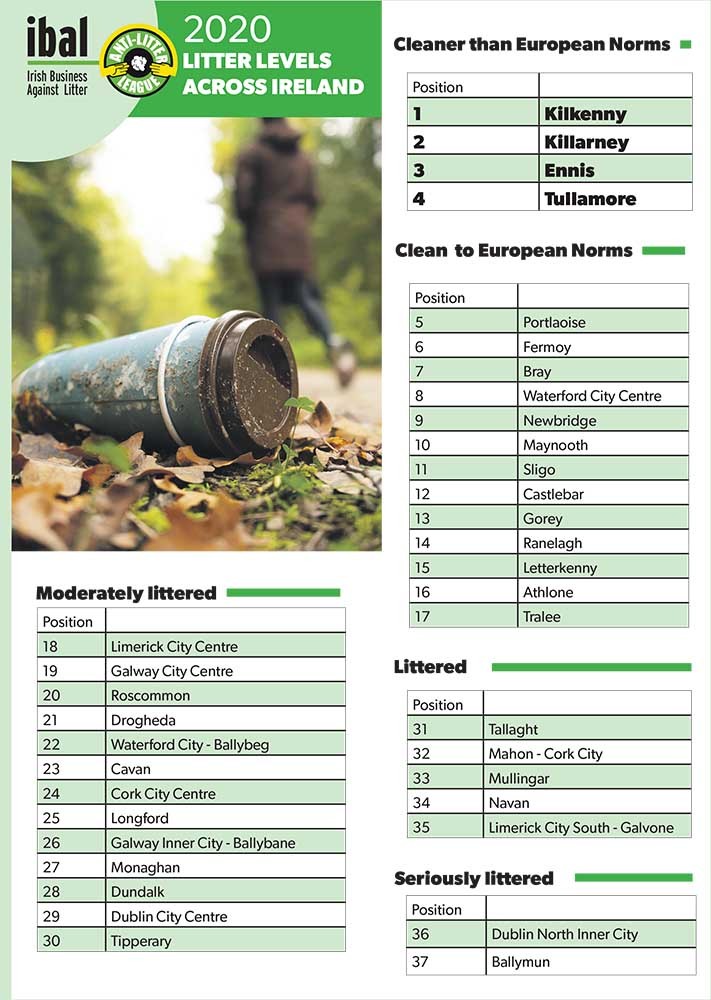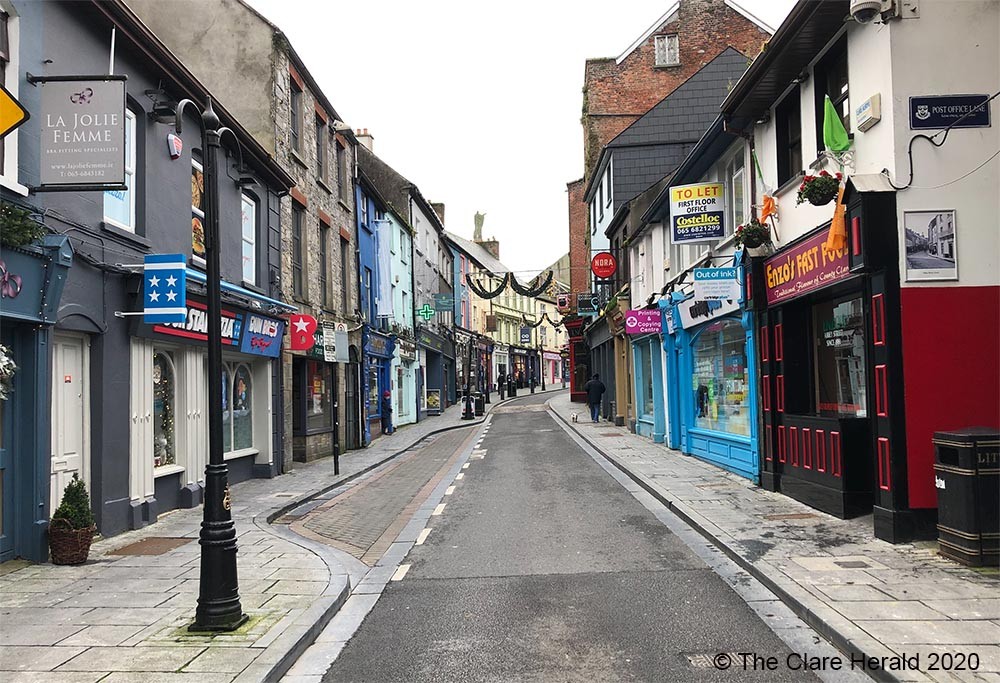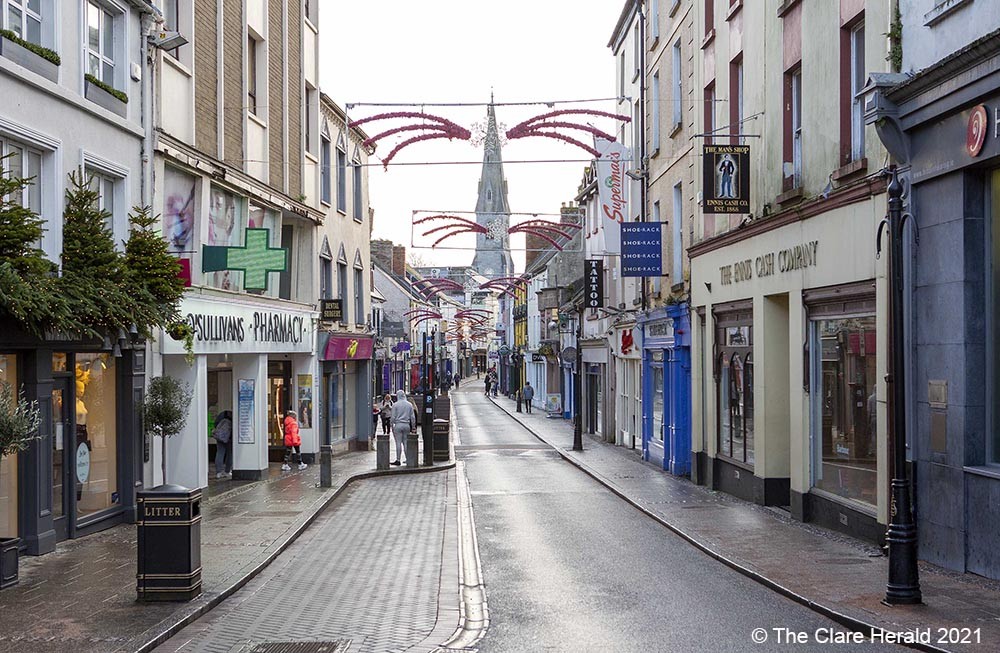
The final litter survey of 2020 by business group Irish Business Against Litter (IBAL) shows Ennis taking 3rd place in the ranking of 37 towns and cities.
The Clare capital lies behind Kilkenny, which took the crown for a record 5th time, and Killarney. For the first time in 13 years, fewer than half of the towns surveyed nationwide were deemed clean.
The An Taisce report for Ennis stated: “A typically strong performance by Ennis has placed it among only 4 towns to be deemed Cleaner than European Norms. Eight out of the ten sites surveyed received the top litter grade. Only Gort Rd Business Park was heavily littered. Both O’Connell Street and Abbey Street were pedestrianised, creating an enhanced shopping environment.
There were some vacant / closed down outlets on Abbey Street but there was no litter directly associated with them. Other top-ranking sites in Ennis included Tim Smythe Park, Ennis Friary and Ennis Recycle Centre – not only were they very good with regard to litter but also well presented and maintained. “
The sites inspected by An Taisce in Ennis were awarded the following grades:
- Street Level Car Park at Dunnes Stores: Grade A
- R352 from Tulla Road West Roundabout: Grade A
- Gort Road Business Park: Grade C+
- Ennis Recycling Centre: Grade A
- O’Connell Street: Grade A
- Ennis Friary: Grade A
- Abbey Street: Grade A
- Tim Smythe Park: Grade A
- Quin Road Approach: Grade A
- Limerick/Ennis Link Road: Grade B+.
The Mayor of Ennis, Cllr Paul Murphy, in acknowledging the results of the IBAL survey, said: “I am delighted to see Ennis once again achieve best in class for litter cleanliness, particularly given the increase in the numbers enjoying recreational activities outdoors. This success can be attributed to the hard work and dedication of our volunteers in community groups, especially Ennis Tidy Towns, as well as Council staff.” Cllr Murphy acknowledged and supported the positive comments regarding the presentation of the sites inspected.
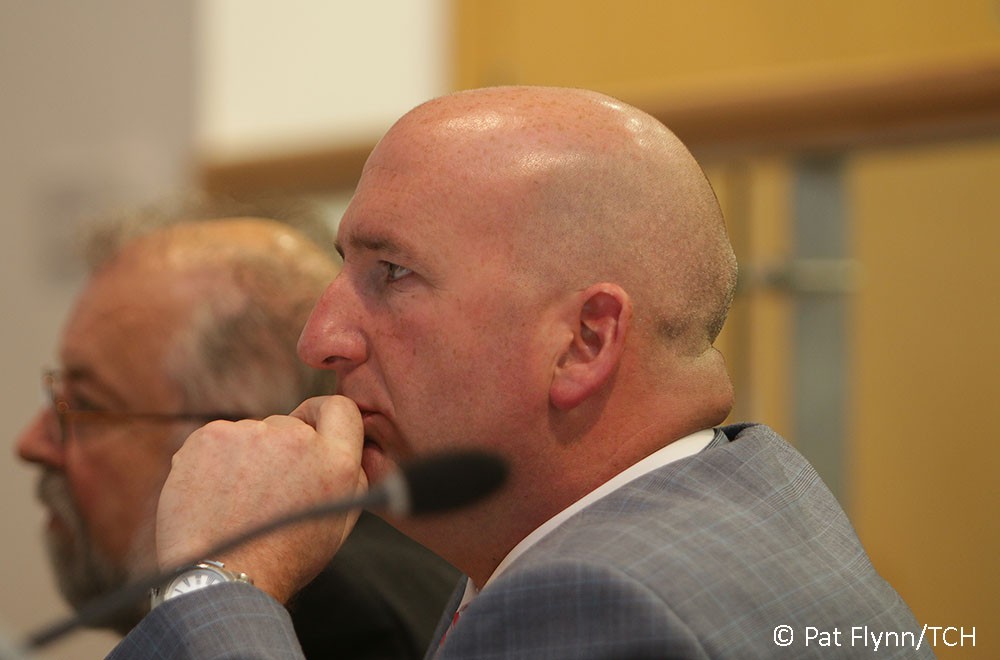
Carmel Kirby, Director of Services, Physical Development Directorate, Clare County Council, said: “Maintaining the highest level in the IBAL nationwide litter survey is not an easy feat to accomplish, and huge credit goes to all who contribute to maintaining the town’s cleanliness. It is through this dedication that we can all enjoy and take pride in our county town.”
Leonore O’Neill, Senior Executive Officer, Ennis Municipal District (MD), Clare County Council, said: “This achievement is evidence of the commitment of Ennis MD staff, street-cleaning crews, the gardening section of Clare County Council and the tremendous contribution of community and voluntary groups, especially Ennis Tidy Towns.”
Cormac McCarthy, Chairman, Ennis Tidy Towns, said: “Ennis Tidy Towns are delighted with the town’s ranking in the 2020 IBAL Anti-Litter League. Litter management in the town is a concerted effort not only by Tidy Towns volunteers but by Ennis MD staff and local businesses. The fact that Ennis Town has moved up the rankings is an achievement we can be proud of, and reflects the sustained effort and commitment of everyone involved. New volunteers are always welcome to join Ennis Tidy Towns and help keep Ennis litter-free.”
The survey revealed litter levels had risen in 24 of the 37 towns and cities inspected by An Taisce at the end of 2020, resulting in only 17 being judged to be clean – a fall of over 25 per cent on last summer and in sharp contrast to just three years ago, when 80 per cent were clean.
Set up in 1996, Irish Business Against Litter is an alliance of companies sharing a belief that continued economic prosperity – notably in the areas of tourism, food and direct foreign investment – is contingent on a clean, litter-free environment.
As part of the IBAL Anti-Litter League, An Taisce monitors towns independently and in accordance with international grading standards.
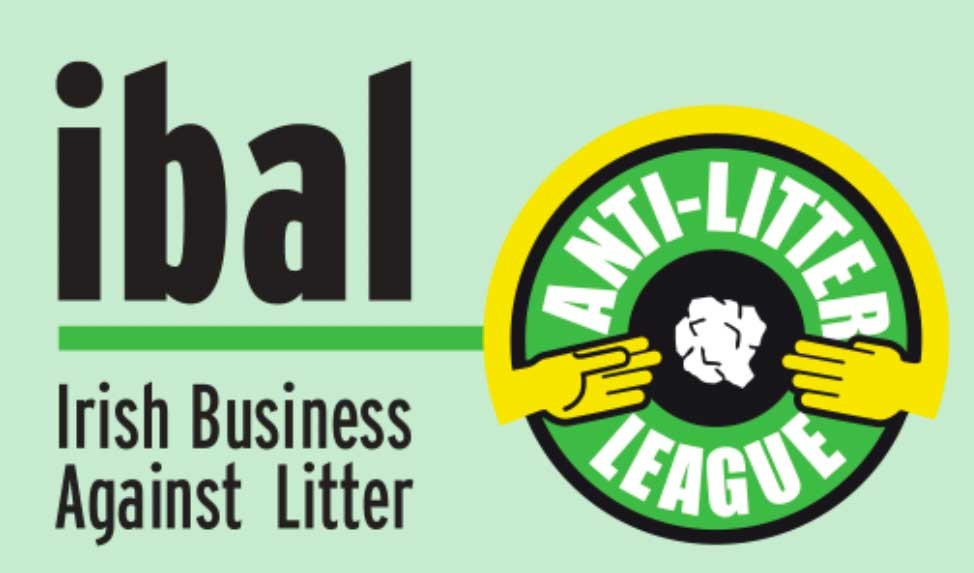
PPE litter
Coffee cups were among the most prevalent litter types found, while there was another rise in glass bottles and cans, suggesting that outdoor drinking has not waned over the winter months. The survey also showed that the second half of 2020 brought a further increase in PPE-related litter, primarily masks.
“8 months into the pandemic, we would have hoped people would have moved to reusable masks with a resulting fall in mask-related litter. In fact, we are seeing more and more of them ending up our streets,” says Mr Horgan.
Heavily littered sites ‘getting worse’
The report highlighted a continued rise in the number of blackspots in towns and cities. IBAL was once again critical of the failure of local authorities to address sites that had been identified in previous surveys as heavily littered. 36 such sites were revisited in this latest survey, yet only 11% were found to have been cleaned up and more than a quarter had actually worsened.
Reluctance to pick up litter
According to IBAL, the reluctance among civic-minded people to pick up litter during the pandemic may carry long term consequences. “While people have certainly become more attuned to their natural surroundings and more conscious of how litter can spoil those surroundings, this is offset by an understandable unwillingness to pick up waste for fear of contamination. As the pandemic endures, and with it the sensitivity around touching items, people may simply get out of the habit of picking up other people’s litter. We risk losing a civic behaviour which is vital in keeping our country clean,” concludes Mr Horgan.
